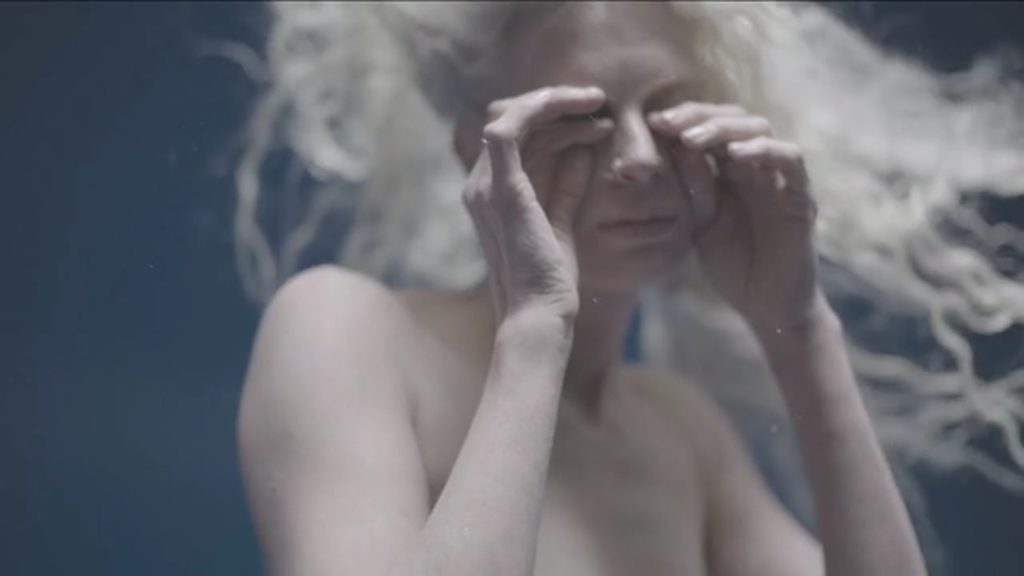The Time for Art Is Now
In these relentlessly dark and riven times, I find myself beset by a near ravenous hunger for beauty. My spirit lurches at a line of Shakespeare or Louise Glück—“All fear gives way: the light / Looks after you … ” My eyes linger on the photographs of Nadav Kander, the paintings of Marlene Dumas, the sculptures of Sarah Sze. I reassure myself of the possibility of serenity by recalling Willa Cather’s masterpiece, Death Comes for the Archbishop, or by listening to the extraordinary voice of Hannah Reid, the vocalist of London Grammar. I long for that expansion of my soul.
We have so much to learn. The ideals that have shaped my entire life thus far have been called into question by the election of this so-called president. They are ideals worth fighting for: a faith, as Martin Luther King assured us, that the long arc of history bends toward justice; that societies have the desire and capacity for improvement; that reflection and communication will foster greater compassion; and a belief that one of the most powerful paths to progress is through art and literature. I have believed in the value of knowledge and of truth. And I have believed that the quality of a life is not measured by money, celebrity, or material goods but by richness of mind, generosity of spirit, and by meaningful human relationships.
Along with these beliefs comes an endlessly renewed (and renewable) joy in the superfluous. By which I mean the things which thrill and enchant, delight and inspire, move and hold us rarely fall into the category of the necessary. I’m not making light of the necessary—food, water, shelter, health, employment, companionship—without which we manifestly can’t survive. But what makes us human is our capacity for memory, for laughter, for passion, for grief and for joy.
Ours is a bleakly utilitarian era. Every act, it seems, must be overtly purposeful, its value measurable, or else we deem it dispensable, a waste of time. Between the demands of social media (and our constant sense of inadequacy in the face of the thousands, nay millions, whose lives appear—often falsely—more orderly, productive and impressive than our own) and the lessons disseminated by our culture and its so-called leaders (for example, that monetary wealth is the ultimate goal), we risk losing sight of what makes existence meaningful. None of us needs a mansion or a fat bank account. None of us is made fundamentally happier by a private jet, a drawer full of diamonds, a television show, or a YouTube channel. Nor does watching others accumulate these things enhance our own lives. Capitalism hoodwinks us daily. The stuff we buy, thinking it will improve our lot, proves to be bullshit—as is made evident from overflowing donation boxes at the Goodwill. These are the products of a culture of greed and self-interest. They dull us to our society’s injustices and distract us from fighting against them.
But where might we find joy? Joy lies in immaterial superfluity. I find it in the long hours spent reading a book. I make this suggestion advisedly: to watch a film or a video is not the same satisfaction; when reading a book you create, for yourself, from marks upon a page, an entire, vivid interior world. You are spurred, of course, by the author, but in its particulars uniquely and fully your own. Or you might find it in communing with a painting, sculpture, or installation until you feel you’re part of it, or it is part of you. Or in lying in a summer field looking up at the dusk sky unfolding from palest pink to indigo, the awakening of the stars. Or in what Christopher Hitchens used to call “the ruined table”—the afternoon or evening lost in eager conversation long after the meal is finished, best enjoyed surrounded by empty bottles, dirty plates, and crumbs. Or in an afternoon ramble without direction or a timepiece, or in an evening spent listening to music—any music, anywhere.
There’s no clear point to any of these things: they don’t make money or burn calories or help you network or make you famous. They make you human. No robot will ever replicate the twinge behind my sternum or the filling of my throat when I hear particular phrases of Chopin or the Beatles; nor the lifting of my heart at a line from Keats or Elizabeth Bishop; nor the delicious emotional recognition of a scene in Proust or a Frederick Wiseman film. The moments that matter most often occur in our minds or imaginations. They may remain unarticulated, never breaking the surface of our lives, and yet they prove communicable nonetheless. That’s what art can do; it’s why art matters.
We must struggle to change our institutions, but our resistance to the depravity and depletion of these times must go beyond that. It must also occur in our souls. We are animals, and we must not forget that we live in our bodies; but we are animals blessed with memory and language. Each of us can create unprecedented beauty. We can transmit, even if imperfectly, the contents of our imaginations. We can learn from what has come before, and from what surrounds us. We are not doomed. As Shakespeare has it in King Lear, “Tis not the worst. So long as we can say ‘this is the worst.’ ”
There is glory in each day, for each of us. It is waiting to be illuminated and observed. Auden wrote that poetry makes nothing happen, but in our hearts and in our lives, we know that is not true. Art has the power to alter our interior selves, and in so doing to inspire, exhilarate, provoke, connect, and rouse us. As we are changed, our souls are awakened to possibility—immeasurable, yes, and potentially infinite. If ever there was a time for art, it’s now.
Claire Messud’s most recent novel is The Burning Girl

No comments:
Post a Comment